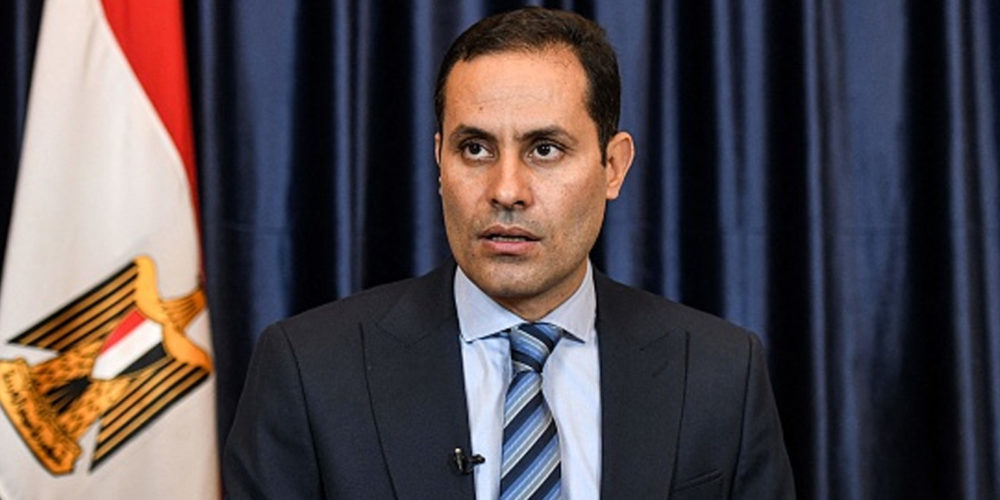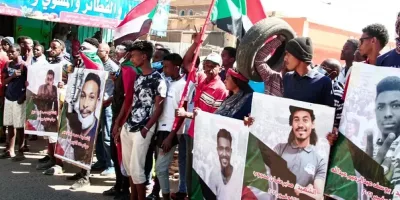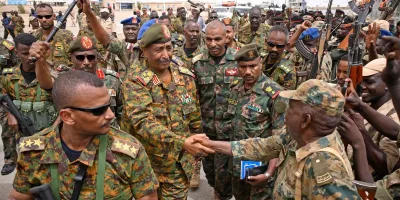The Committee for Justice has expressed concerns about the escalating tensions in Egypt, especially in light of President Abdel Fattah el-Sisi’s unfulfilled promises of free and fair presidential elections. All such assurances have been disregarded in practice, as evident in the first phase of the election process (collecting endorsements), where significant violations and suppression were noted against opposition candidates Ahmed Al-Tantawi and Gamila Ismail. These conditions led to Gamila Ismail’s withdrawal and Al-Tantawi’s inability to collect the necessary endorsements.
Furthering its oppressive measures, the Egyptian authorities charged Ahmed Al-Tantawitan with “distributing presidential election papers without authority permission” and referred him to the Mataria Misdemeanor Court on Tuesday. Al-Tantawi had proposed an alternative approach for his supporters to fill out manual forms, termed “popular endorsements,” after they faced challenges in obtaining official endorsements through standard procedures. These forms resemble those used by Egyptians abroad.
According to media reports, a campaign member of Al-Tantawi expressed shock upon discovering the inclusion of Al-Tantawi and his campaign manager Mohamed Abu Al-Diyar as defendants in the endorsements case. The case hearing has been postponed to November 28, according to local media reports.
In its report on collecting endorsements and fulfilling presidential candidacy requirements, CFJ highlighted multiple violations during this period. Among these were the refusal by 47 notary registration offices in 18 governorates to process endorsements for Al-Tantawi’s supporters and repeated violations in Egyptian embassies in Kuwait and Saudi Arabia.
The authorities employed several tactics to prevent the processing of these endorsements. These included using thugs to assault and threaten Al-Tantawi’s supporters, security personnel intimidating citizens seeking to endorse Al-Tantawi by withdrawing their IDs, photographing them, recording their details, and arbitrary arrests under the guise of involvement in fabricated clashes with these thugs. Notable activists who faced prevention in processing endorsements include Ahmed Maher, Esraa Abdel Fattah, Gamila Ismail, and Asmaa Mahfouz.
Additionally, the authorities orchestrated the mobilization of paid individuals, members of the Future of a Nation party, thugs, plainclothes security forces, and government employees at notary registration offices from 7 AM to 5 PM. Their objective was to hinder citizens from processing endorsements, instigate clashes, intimidate citizens, and perpetually occupy the front lines of the endorsement processing queues.
Eyewitnesses reported to CFJ about individuals discussing money and food boxes, their collective arrivals and departures at the registration offices, and some plainclothes security members distributing cigarettes to them. CFJ also documented instances of the political regime exploiting beneficiaries of state charitable and social aids, coercing them into processing endorsements for President Sisi.
CFJ detailed in its report that these violations during the presidential candidacy period constitute a clear breach of Article No. 1 of the Law on the Exercise of Political Rights No. 45/2014. This law states that every Egyptian who has reached the age of eighteen has the right and duty to participate in referendums and presidential elections. The obstructions created by notary registration offices in processing endorsements for an opposition candidate effectively deprive citizens of their rights. Additionally, Article 1 of the Presidential Election Law 22/2014 outlines eight conditions for presidential candidacy, including the enjoyment of civil and political rights, with no stipulation against opposing the current political regime.
These widespread violations and impediments compelled the presidential hopeful, Ahmed Al-Tantawi, to seek popular alternatives, directly engaging with the populace without resorting to any official institutions, which have ignored his and his supporters’ appeals. The National Election Authority, the body officially overseeing Egypt’s elections (appointed by the President), dismissed all complaints as rumors intended to discredit the election process, a claim contradicted by factual evidence.
CFJ strongly condemns the Egyptian authorities’ decision to refer Ahmed Al-Tantawi to the Misdemeanor Court, viewing it as an attempt to undermine him and the broader Egyptian opposition. This approach has been similarly employed against all potential candidates who have previously aspired to challenge Sisi in presidential elections, including General Sami Anan and Colonel Ahmed Konsowa, who were accused of violating military law and subsequently imprisoned.
CFJ urges UN and international bodies to closely monitor the unfolding events in the Egyptian presidential elections, which cast doubt on their fairness, and to ensure that the Egyptian authorities do not exploit the crisis in Gaza to manipulate the election outcomes, which appear to be predetermined in favor of the incumbent President Abdel Fattah el-Sisi.
Additionally, the Committee for Justice calls on these international bodies to closely observe the trial of Al-Tantawi, ensuring that the court proceedings and actions align with internationally recognized standards of a fair trial.






